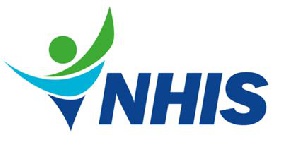Agents of the National Health Insurance Authority within the Adentan Community in Accra are being trained to identify the poor for free registration under the scheme.
A sensitisation forum on the National Health Insurance Scheme (NHIS) and its impact on poverty alleviation and allied issues has, therefore, been organised for the stakeholders by International Forum, a non-governmental organisation, in collaboration with the Adentan District Citizens Monitoring Committee (DCMC) with support from SEND-Ghana.
The DCMC comprises small-scale food crop farmers, women’s groups, the youth, persons with disability, and district assembly members.
Madam Nora Ollennu, the Chief Executive Officer of International Forum, and focal person of the Adentan DCMC, said the forum had become necessary because some schemes could not provide data on the poor whilst others had very low numbers on them on the schemes.
It had, therefore, become imperative for that gap to be bridged, Madam Ollennu said.
She said the first principle underlying the design of the NHIS demanded “that everybody had access to the minimum benefit package of healthcare, irrespective of the person’s socio-economic background and has an equal opportunity to join a health insurance scheme of his/her choice”.
“As stakeholders, if we will all recognise each other as such, then I believe with a concerted effort and a coherent approach, we can address the challenges coupled with the implementation of the Government pro-poor policies and programmes,” she said.
This, she said, would not only help the Adentan Municipality to chalk lots of successes but also help promote good governance practices of accountability, transparency and citizen participation.
Mr Nicholas Kofi Agbenku, Public Relations Officer of NHIS-Adentan, said his outfit was entrusted with the responsibility of registering the vulnerable in society under the scheme.
However, he said his outfit did not have the mandate to identify the poor and vulnerable for registration but that onus lay on the Department of Social Welfare and Community Development.
He said the NHIS was responsible for equipping agents of the scheme to help identify the poor, vulnerable and excluded for registration through a mobile team that reached out to the community.
The target group, he said, included children, the aged or persons of 70 years and above, HIV/AIDS patients, orphans, persons with disability and other identifiable vulnerable groups.
Mrs Clara Sowah, Director of the Department of Social Welfare and Community Development, Adentan, said the Department aimed at ensuring a sustainable and empowered society by providing social protection systems.
She said the Department used a standard strategy adopted by the Government and stakeholders to identify the poor and vulnerable within the communities for free registration under the NHIS.
The selection of the poor within a community for registration on the NHIS, she noted, was based on specific indicators such as the availability of social amenities like potable water, drainage, and toilet facilities.
She said the beneficiaries of pro-poor programmes such as the Livelihood Empowerment Against Poverty must of necessity be bearers of the NHIS card.
During discussion time, the group agreed on the need to collaborate with the lead agencies to identify the poor within the communities to register with the NHIS.
Health News of Friday, 8 May 2015
Source: GNA













